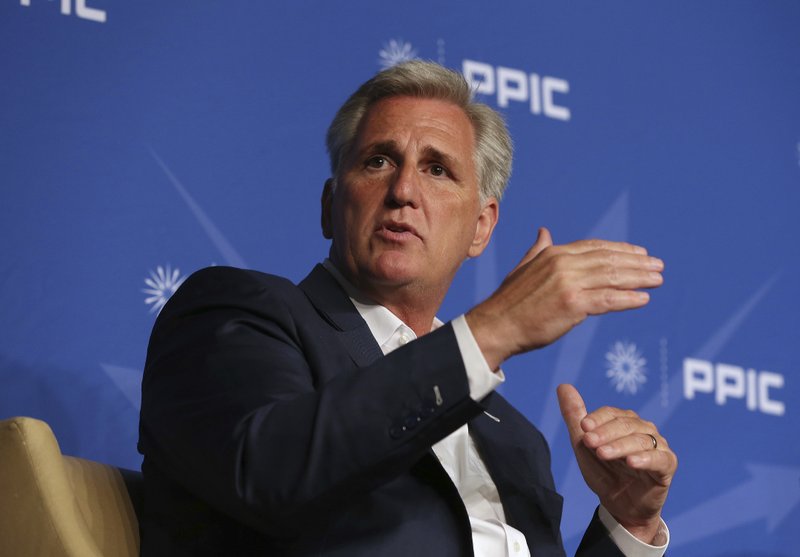WASHINGTON -- Two House Republican leaders are backing President Donald Trump's proposed Space Force, but key Republicans in the Senate aren't sold on the idea, setting up a debate over establishing and paying for a new branch of the military.
Majority Leader Kevin McCarthy of California said the proposal is a "smart way" to address growing investments by China and others in space.
"We'd support that," McCarthy said in a brief interview in Sacramento, Calif.
GOP Whip Rep. Steve Scalise, the No. 3 House Republican, also backs Trump's plan, an aide said Thursday.
McCarthy and Scalise are vying to replace House Speaker Paul Ryan once he retires at the end of this term, if Republicans keep control of the House in the November midterm elections. Ryan has not commented publicly on the Space Force proposal.
In the Senate, Trump's plan has received a cooler reception.
Senate Majority Leader Mitch McConnell has not commented publicly on the Space Force and is awaiting more information from the Pentagon and the committees with jurisdiction, an aide said. The second-ranking Republican, Sen. John Cornyn of Texas, said he is skeptical of the idea.
"Traditionally this has been a role played by the Air Force. And I have not yet heard a compelling case why we need a separate force," Cornyn said, adding he has not yet heard from administration officials about the idea. "I'd like to hear their rationale for creating a separate force."
The Space Force would be the first new branch of the military since the creation of the Air Force in 1947. Congress would need to create and fund the new military service, which is expected to cost billions. The administration is preparing a formal legislative proposal and budget to be presented by the end of the year.
Defense Secretary James Mattis was initially reluctant about creating a new force, concerned about a narrow operation and new layer of bureaucracy, but now is behind the president's approach.
There is rising interest in the U.S.'s reliance on orbiting satellites for military and economic uses at a time when it has been reported that China and Russia are pursuing anti-satellite weapons for use during warfare.
For now, space power is overseen by the Air Force Space Command, which is headquartered at Peterson Air Force Base in Colorado Springs, Colo. Trump's proposal would consolidate operations under a new command, to be up and running by 2020.
Information for this article was contributed by Alan Fram of The Associated Press.
A Section on 08/17/2018

